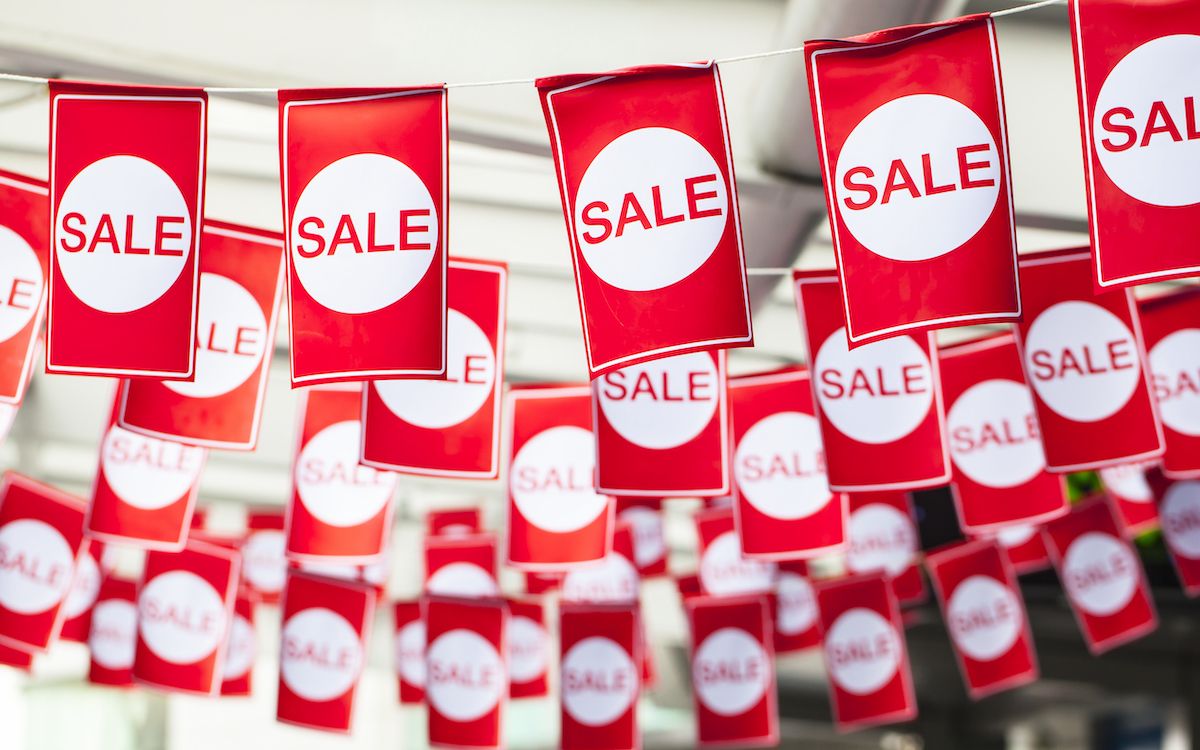
Ecommerce store owners have several challenges to overcome already, and more often than not, it boils down to sales. One area of friction for business owners usually involves email marketing, such as capturing the right leads or not getting enough customer data.
As with any challenges, there are ways to overcome them—especially if you know what to do. In this post, we’ll walk you through 11 essential tips to make the most of your ecommerce sales using email marketing.
Tips to Maximize Ecommerce Sales with Email Marketing
1. Ensure that you comply with current privacy regulations.
Email marketing is one of the most important areas of your business where you should be mindful of privacy. After all, if you can’t prove you measure up to privacy and safety standards, people won’t want to submit their email to your subscriber list or buy from your ecommerce store.
Interestingly, Americans are more concerned about being victims in an online attack than a violent crime. This tells us that privacy is an even bigger issue today than it used to be—and not just for consumers.
As 7 out of 10 businesses are reportedly unprepared for cyber attacks, complying with online privacy standards should be one of your top priorities as an ecommerce business.

The majority of businesses are reportedly unprepared for cyber attacks, making it a must to be on top of privacy—both for your customers’ safety and your business’s credibility. (Image source)
Fortunately, it’s not too difficult to ensure that your ecommerce store stays totally private and safe. Speak with your developers to have security tools installed on your site, such as privacy on domain ownership details and SSL certificates.
You can also encourage your team to have strong passwords, and consider using a company-wide VPN when using the internet—especially when accessing sensitive files and accounts for your business.
Finally, make sure your email service provider (and your business) comply with the CAN-SPAM Act. Most top providers include compliance features by default, but it’s still a good practice to double check whether you need to manually enable or toggle compliance features.
2. Have an irresistible incentive to get customers to subscribe to your email list.
If you want to start email marketing, you need to start getting leads. There are different ways you can do this, but the best way is to give customers an offer so good that they won’t be able to leave your site without submitting their email address.
Ask yourself: what’s the most reasonable thing you can offer for free? Consider this an essential investment to building your list. Think about presenting items or gifts like free shipping, as well as hosting contests and giveaways as your lead opt-in.

Williams Sonoma offers not just 15% off, they also add free shipping to boot. (Image source)
3. Create a welcome email series.
One of the best email marketing strategies to implement is having a welcome email series for new leads and subscribers.
This welcome series will often walk your leads through a nurture sequence that gets them in the mood to purchase. After all, customers often don’t make a purchase right away, so you’ll want to consistently be top of mind so that when they’re ready to buy, they buy from you.

Kate Spade’s welcome email is beautifully designed, made to resemble a handwritten letter.
Your own welcome email series can include tips on how to use your product, or inspiration for when they shop your items. You can also mention the benefits your products have or include customer stories.
4. Segment your customers to increase personalization.
Personalized email content is more valuable to consumers than generalized content. There are several ways you can be relevant and hyper-personalized for your customers.
Aside from other best email marketing practices like using their first name or using a personalized subject line, you can use historical data based on customers’ browsing history on your online store.
Get to know their tastes, and offer recommendations based on that. Segment leads who haven’t purchased yet by gender, and offer tailored email recommendations with products they might like.
5. Offer exclusive discounts and other offers.
Entice existing subscribers by offering subscriber-only discounts and offers. This incentivizes customers to stay on your email list, especially if they know they’ll only have access to exclusive deals via email.

Hotels.com’s email lets subscribers know that this sale is exclusive because they include relevant keywords (“Private” and “email subscribers only”). (Image source)
6. Set up an abandoned cart email series.
The average rate of online cart abandonment is about 78%. That means 3 out of 4 people will leave their online shopping cart without making a purchase.
Fortunately, many shopping cart tools let you recover these emails and send an abandoned cart email to remind them about their purchase. These emails can help boost sales in the long-run; some studies suggest the average conversion rate of abandoned cart emails is at 10%.

(Image source)
7. Make sure your email’s design and layout is mobile-friendly.
Ecommerce businesses will do well to ensure that their email design is easy to navigate across all devices. About 55% of email is opened on a mobile device, after all.
As a best practice, consider having a branded look that spans across all emails. This can also strengthen brand recall and increase perceived value in your brand.

Harry’s has a simple yet stunning email template. (Image source)
Plus, every touchpoint matters. Absolutely every email that you send—not just sales emails or newsletters—ought to be well-designed and easy to read. This includes sales invoice emails that customers receive once they have purchased from your store.
Here’s an example of a well-designed invoice taken from a template at Freshbooks.

Sample invoice template that’s beautifully designed and ready for sending. (Image source)
8. Always make testing a habit.
A/B testing can help you boost conversions and glean important insights about your customers that you might not have seen before. It’s a good practice to test whatever you can in your email marketing campaigns, such as email subject lines, CTAs, and even lead magnets.
Experiment with different types of copy and layouts to see which perform best over time. After consistent testing, you’ll eventually find patterns with which to structure your future campaigns.
9. Share customer reviews and testimonials.
It’s so secret that customers trust other customers, even if they’ve never personally met. To help you increase sales conversions, consider including customer reviews or testimonials in your email campaigns.
Display these reviews underneath a featured product, or use relevant quotes that show the benefit your product has given past consumers.

Your best salespeople might be your own customers. (Image source)
10. Notify them about replenished and Wishlist items.
Having customers sign up for a waitlist when items go out of stock is one way to get them on your list. You can avoid losing out on sales by immediately notifying them once products are available again for purchase.
Push one simple email with a catchy headline to let subscribers know that their wishlist items are in stock. Alternatively, use scarcity to do a subscriber-wide push to inform them that your bestsellers have been replenished.

CineTech keeps their back-in-stock emails straight to the point. (Image source)
11. Launch a referral program.
Last but not least, consider incentivizing customers for referrals. People love getting rewards, whether it’s free product or cash back deals. A simple email explaining the mechanics is often enough to get customers aware of your referral program, but it doesn’t hurt to include a small footnote reminding them of your referral program in future emails.

Referral programs can be as simple as cash incentives. (Image source)
Key Takeaways
Among different platforms, email still reigns supreme as the medium with the most conversions. For ecommerce, you should focus on better email marketing strategies to help you get more qualified leads and increase both conversion rates and sales. Use the tips above to make sure you aren’t losing out on sales, and don’t be afraid to experiment and try new things constantly.











